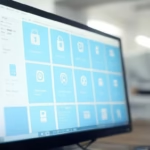It has never been easier to find information. We enjoy access to the most respectable news outlets. However, we also read many other sources, like social media or community platforms like Reddit. The truth is that we cannot trust everything we find online.
For instance, the formula for distributing misinformation is simple. People provide a great deal of accurate information readers know to be true. However, then they mix in the misconceptions or facts that have no merit.
So, how can you verify the information you discover online?
The Scale of Misinformation Today
People rely on the internet, particularly social media, to obtain news rather than newspapers or television. In 2020, experts noted that people getting their political information via social media are more likely to be less well-informed and engaged with the situations.
Furthermore, anyone can post their opinions or share articles from questionable sources. While somebody is stating something as a fact, it might be an interpretation.
How to Fact-Check Information Online
You have options if you wish to fact-check the content you come across on the internet. It only takes a few minutes but encourages you to come to the correct conclusions and make informed decisions. A few proven methods are listed below.
Identifying Sources
When opening an article, it helps to check the source of information. The author often has no intention of publishing false facts, but they can unknowingly do so if their source is faulty. The information may need to be more accurate, or the data may come from a minimal pool of candidates.
Researching the Author
While a media company may be extensive and far-reaching, the information they publish follows a set process. You can check other pieces and determine whether they have a history of misleading content or favouring the argument for potential incentives. Sometimes, to keep up with the evolving news, a company may automatically apply AI to publish any news feed without verification. So, it’s best to do your research instead of going with the text on the screen.
Verifying Publication Date
Whereas much of the information might be false, some might be outdated. Therefore, it’s best to verify the publication date. The article may have accurate information, but it may be outdated or denoted as speculation.
Assessing the Community’s Response
It pays to realize what others think of a specific publication before making up your mind about it. Several public forums allow for follow-ups from viewers who can voice their opinions and cite additional sources to prove/disprove the information. If there is plenty of backlash over a specific piece from the public, then perhaps the piece is untrustworthy.
Using Independent Fact Checking Websites
Regardless of what kind of media you encounter, fact-checking websites can help you draw empirical evidence from genuine sources. Those are often community-funded and have qualified experts without ties to any business or political party.
Protecting Yourself from Misinformation Spamming
While you can actively verify the authenticity of any data you observe online, it’s also good to have a few passive measures. You can filter much of it out using the following measures.
Block Unwanted Sites
If too many news websites prove to be repeatedly inaccurate, you can block them from your preferred browser. It just takes a few modifications within the settings to reduce the visibility and remove notifications.
Browse the Internet Anonymously
Access to unbiased media depends on where you live. So, you can download VPN apps to open doors to more content online. A Virtual Private Network encrypts internet traffic and lets you change your IP address to enter many news outlets. Thus, you can enjoy access to both local and international sources.
Verify All Data Downloads
Several websites can use cached downloads to track personal data. You can avoid it by using antivirus software that scans all files downloaded on your system. While your PC may have one already installed, third-party tools like Norton and McAfee are more efficient.
Be Wary of Promotional Content
Most search engines and social media platforms often favour advertisers who invest in making their brand more visible on the internet. In doing so, they don’t shy away from exaggerated or unrealistic claims about their products or specific events. Thus, it helps to avoid any sponsored domains and check for the facts from a reliable third party.
Summary
The spread of misinformation online is set to continue for a while. Several entities with plenty of financial gains rely on the masses being misled. Thankfully, there are several methods on how to fact-check information online, and we hope this guide helps you filter through it most conveniently.








